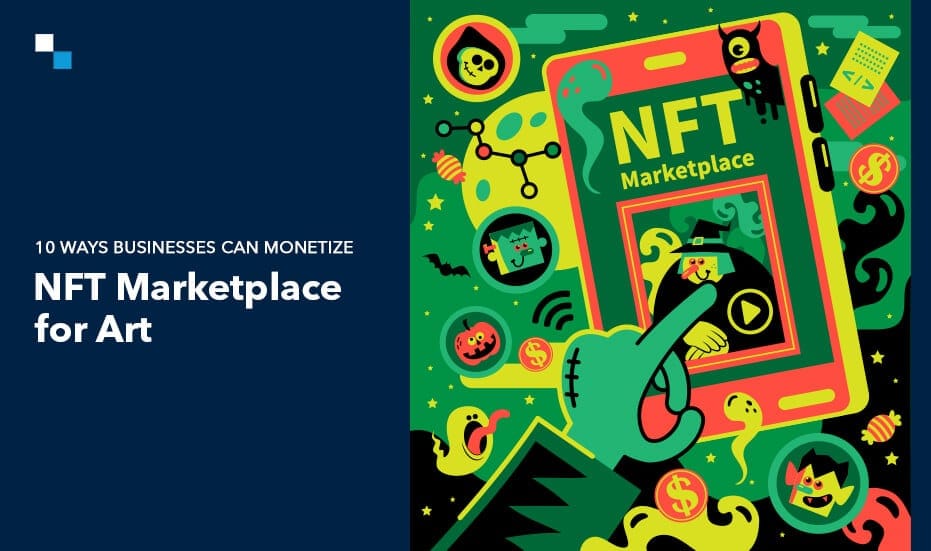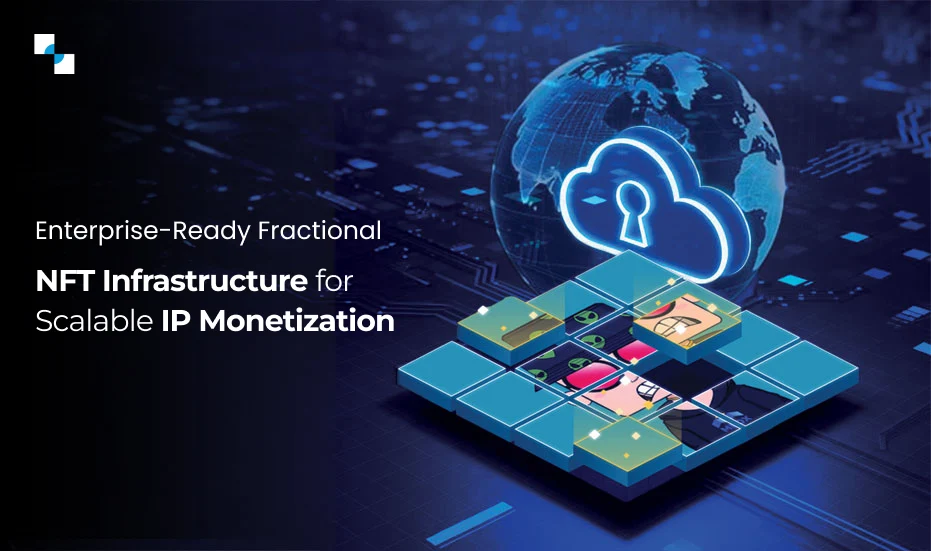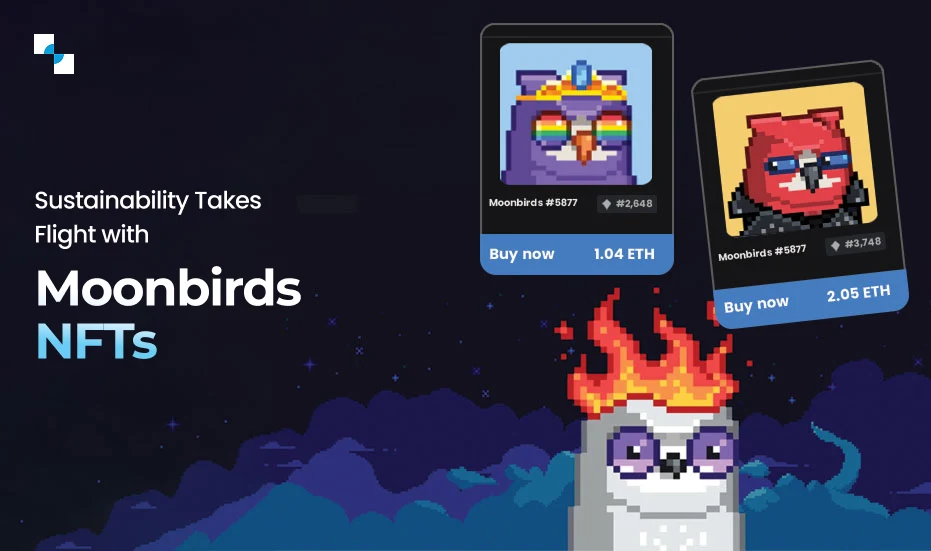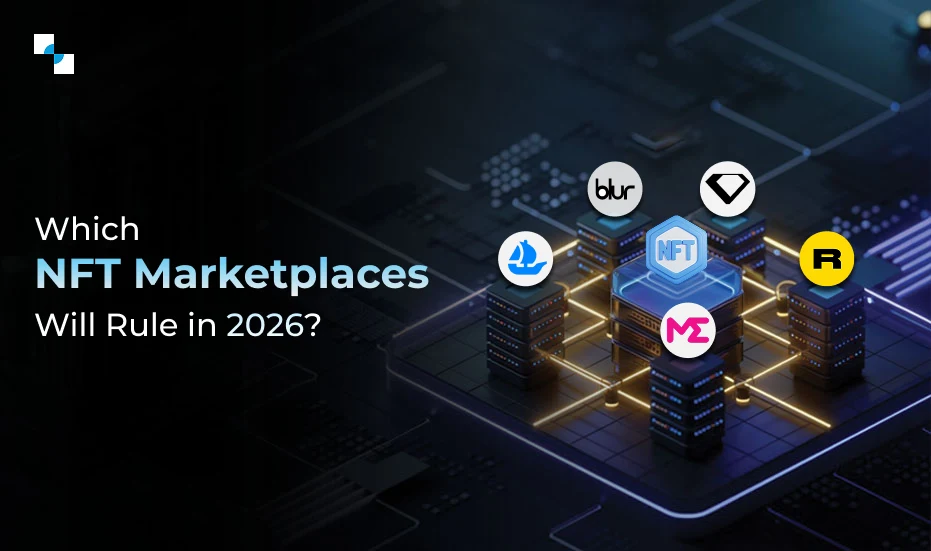Non-Fungible Tokens (NFTs) have emerged as a revolutionary force, reshaping the landscape of art and creativity. For businesses venturing into the NFT marketplace development, unlocking diverse revenue streams is key to sustained success. Gain insights into 10 ways businesses can generate revenue streams by launching an NFT marketplace for art.
1. Primary Sales Commission
In the NFT art marketplace, the primary sales commission model is the backbone of revenue generation. The marketplace can charge a percentage fee on the initial sale of NFTs, creating a relationship with artists. This commission not only sustains the platform but also serves as a testament to the commitment of supporting and promoting artists. As artists flourish and gain recognition, the marketplace can, in turn, benefit from the increased value and appeal of its curated collection.
2. Secondary Market Transaction Fees
Beyond the initial sale, secondary market transaction fees solidify a continuous revenue stream for the NFT marketplace art. Through the implementation of smart contracts, the marketplace can automatically receive a percentage from each resale transaction. This approach not only incentivizes collectors to participate in the secondary market but also aligns the marketplace’s interests with the long-term success and appreciation of the NFTs.
3. Listing Fees
Listing fees serve as a gateway for artists and collectors to access the NFT marketplace. Businesses can charge a nominal fee for listing NFTs, which ensures a curated and high-quality collection, preventing spam or low-value content. This model allows the marketplace to maintain a balance between accessibility and exclusivity, generating consistent revenue while maintaining the standards of the platform.
4. Subscription Model
The subscription model introduces tiered memberships, offering premium features and exclusive content to subscribers. This not only generates recurring revenue but also enhances the overall user experience. Premium subscribers may enjoy early access to new releases, exclusive behind-the-scenes content, or even participate in limited-time events, creating a sense of exclusivity and community within the NFT marketplace for artists.
5. Verification Services
Verification services contribute to the credibility and authenticity of the NFT marketplace. By charging artists for verification, the platform can assure collectors of the originality and legitimacy of the NFTs. This verification process not only enhances the reputation of the marketplace but also creates a revenue stream while providing artists with a valuable service to distinguish their work from potential counterfeit pieces.

6. Licensing and Royalties
Businesses can integrate the licensing of digital content or implement royalty models into their NFT marketplace for art. This can be done to empower artists to maximize the potential of their NFTs. Marketplace owners can charge fees for facilitating these licensing agreements, allowing creators to earn ongoing revenue as their digital assets are used in various applications, such as virtual goods in gaming or multimedia projects. This revenue-sharing model aligns the interests of the marketplace with the ongoing success of the artists.
7. Community Features and Virtual Events
Charging for access to premium community features or virtual events enhances engagement within the NFT marketplace for artists. This model encourages users to invest not only financially but also emotionally in the community. Exclusive forums, virtual gatherings, and special events create a sense of belonging, attracting dedicated users who are willing to pay for an enhanced social and interactive experience.
8. Integration with Physical Goods
Associating physical products with digital NFTs opens up a new dimension of revenue generation. By facilitating the sale of physical goods linked to NFTs, the marketplace can charge fees for these transactions. This model not only attracts collectors seeking tangible assets but also provides artists and brands with an opportunity to expand their merchandise offerings. Consequently, it creates a seamless bridge between the digital and physical realms.
9. Corporate Partnerships and Sponsorships
Collaborating with brands through co-branded NFT collections or sponsorships enriches the revenue model. The NFT marketplace for art can enter strategic partnerships to generate income and leverage the brand equity of corporate collaborators. This collaboration model extends the reach of the NFT marketplace, attracting new audiences and fostering mutually beneficial relationships with businesses looking to tap into the NFT space.
10. Premium Analytics and Insights
Offering premium analytics and insights as a paid service empowers artists and collectors with valuable data. Businesses can charge for detailed information about the performance of NFTs, providing insights into market trends, buyer behaviors, and the overall impact of their digital assets. This model caters to the data-driven needs of users, enabling them to make informed decisions and refine their strategies within the NFT marketplace art.
Launching an NFT marketplace requires a nuanced understanding of diverse revenue models. By strategically implementing these models, businesses can not only capitalize on the NFT revolution but also foster a sustainable ecosystem for artists, collectors, and the platform itself. As the digital art landscape continues to evolve, the adaptability and innovation embedded in these revenue generation models will be the cornerstone of success.
Why Choose Antier for NFT Art Marketplace Development?
Our blockchain engineers have real-world experience building and delivering enterprise-grade NFT marketplace for art. We provide end-to-end development services – from smart contract integration to fortifying the marketplace with market-leading features – to optimize the marketplace for world-class security and performance. In addition to development services, we provide business-oriented consulting solutions to help businesses make the right choice – whether related to technology stack or revenue model.
Connect with our subject matter experts to discuss your needs for the NFT marketplace for art.







